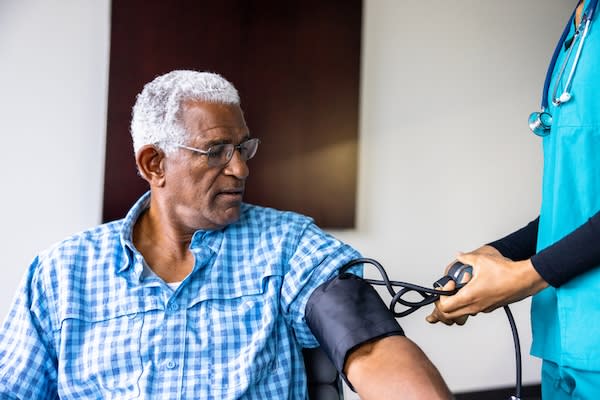Growing up healthy: The unique needs of children 6 – 12 years old

[6 MIN READ]
In this article:
-
School-age children between six and 12 years old experience numerous developmental milestones, including increased independence, developing close friendships outside of family members and the beginning stages of puberty.
-
Healthy eating habits, getting enough sleep and regular physical activity are among the most important things your school-age child can do to maintain optimal health.
-
A board-certified pediatrician offers her expert insights into this stage of childhood development and answers common questions of parents and caregivers to help them better navigate this unique season in their child’s life.
As children transition from early childhood into their pre-adolescent years, they experience significant physical, emotional and social changes. Understanding the key milestones and health needs of children ages six to 12 is crucial for parents and caregivers, but there's often so much going on at once that it can be difficult to know where to start.
We talked to Elizabeth Meade, M.D., pediatrician at Providence Swedish, to get answers to your most pressing questions about the unique health needs of children ages six to 12. Here’s what she shared.
What are the key developmental milestones for children ages 6 – 12?
Dr. Meade: This is an extensive age range, so many different milestones happen. From a social and emotional standpoint, children start showing more independence from their parents. They begin thinking more about their future and understanding what that means.
Younger children in this age group begin to care about friendships and being accepted. We start to see kids explore their role in the world and how they relate to people other than themselves.
Later in that age range, kids become much more aware of their bodies. Some might be showing signs of puberty, particularly girls. Kids at this age start to have a lot of increased complexity around friendships, relationships, peer pressure and attraction to other people.
How do you recognize developmental delays?
Dr. Meade: Milestones are interesting because they have an enormous range of what's normal. Many of these things have a broad spectrum of age ranges considered within normal limits. It's challenging not to compare our kids to other kids we know. Parents should be reassured that it's normal for a child to learn to read at 4 years old and it's normal for a child to learn to read at 7 years old.
That said, parents know their kids best, and if they are concerned about their child's development, they should contact their child's primary care doctor or pediatrician to discuss it. We really want to know if you feel something is not adding up.
What vaccinations do children in this age group need?
Dr. Meade: By the six- to 12-year age range, most kids have had their first round of vaccinations and any needed boosters. If they're missing anything, now is a great time to catch up. Other than annual immunizations like a flu shot or COVID booster, the next batch of routine childhood vaccines typically happens at the end of this age range.
Vaccines needed during this age range include:
- Tetanus, diphtheria, pertussis (TDAP) booster
- Meningitis vaccine
- Lipid panel for cholesterol screening
- Human papillomavirus (HPV) vaccine
Do children aged 6 - 12 need any health screenings?
Dr. Meade: We'll check cholesterol at least once during those years. Kids typically get blood pressure, vision and hearing screenings at their family doctor or pediatrician's office once a year.
How important is sleep to my child’s health?
Dr. Meade: Getting enough sleep is really, really important. Young children should aim for between nine and 12 hours of sleep a night, depending on the child. Sleep affects your child’s overall health, including mental health, emotional regulation, school performance and well-being. It really is one of those foundational pieces for good health and a healthy lifestyle.
How can I help my child develop good sleep habits?
Dr. Meade: Consistency and avoiding screens or video games before bed are two of the best ways to encourage good sleep habits. Make sure your kids go to bed early enough to support nine to 12 hours of sleep before they have to get up again. If your child has a phone or another device, keep it out of the bedroom at night. Read about more helpful sleep strategies and tips in this blog.
How important is regular physical activity for my child’s health?
Dr. Meade: Regular physical activity is one of the most important things children need to have a healthy lifestyle. It doesn't have to be organized sports or exercise programs. It just needs to be time every day for movement. Movement makes your child happy, and it impacts their physical, mental and emotional health. We see a big, big, big effect when we allow kids time to move their bodies.
What type of physical activity benefits kids in this age group most?
Dr. Meade: It doesn't matter as long as it's a safe activity, and they're moving their bodies and having fun. Hopefully, they're also getting some outdoor time as part of that activity. I'm in favor of whatever type of movement kids want to do as long as it's safe and age appropriate.
Does physical activity help children manage stress and mental health issues?
Dr. Meade: Absolutely! Physical activity plays a critical role in helping children feel less stressed, sleep better and generally be more resilient and better equipped to take on the challenges that they face every day. Establishing healthy habits early on greatly impacts our lifelong health trajectory.
Can a child be too physically active?
Dr. Meade: In this age group, if we see kids specialize in a single sport too early, we can see some negative consequences of physical activity – what we call overuse injuries. Kids who perform repetitive movements, such as dancers, gymnasts, baseball players, swimmers, etc., if they're really focusing and specializing and spending a ton of time on that single sport, we see higher burnout and stress overuse injuries.
For kids who play sports, a parenting tip I share is to take off at least one or two days a week and then two or three months a year from a specific sport to recover and explore other interests. Not only does it help their bodies, but it also reduces burnout and stress levels.
How important is a well-balanced diet for kids in this age group?
Dr. Meade: I know a well-balanced diet is essential for good health, but I also know how hard that can make mealtimes. It's important to remember that we take that 30,000-foot view. We want to think about the cumulative nutrients our kids are getting. We don't have to worry that every single meal is perfectly balanced as a standalone. Sometimes, it will be pizza and maybe some carrot sticks on the side if we're lucky. Sometimes it will be a birthday party, and that's all they’ve had to eat for the day.
The real test is: If you think about all the food your child eats in a week, does it feel pretty balanced? If the answer is yes, then you're doing a great job.
Here are some tips to help your family eat healthy.
Does my child need to take a multivitamin?
Dr. Meade: Most kids who eat a diet that includes some produce are doing fine in the micronutrient area. There are some exceptions to this. We see iron deficiency in kids who might not eat a lot of meat or green vegetables, which are among the best ways we can get good iron and Vitamin D.
Talk to your pediatrician or family doctor if you’re worried your child isn’t getting the nutrients they need. They can help you determine whether your child needs testing or would benefit from a supplement.
What are some signs that my child might have a food allergy?
Dr. Meade: Many children with food allergies will have shown signs by this age. However, food allergies can certainly happen anytime. If you have a child who's consistently having a physical reaction of some sort when they're eating a particular food, then those are things that certainly would indicate looking for a food allergy and seeing if it's there. If your child is having any gastrointestinal symptoms, it's definitely worth talking with their doctor to see if it might be an allergy condition.
Potential signs of a food allergy include:
- Unusual rashes
- Vomiting after eating a particular food
- Hives
- Difficulty breathing after eating a certain food
- Nausea or vomiting after eating a specific food
How can parents differentiate between typical behavior changes and potential mental health concerns?
Dr. Meade: Sometimes, it's challenging to tell the difference between regular behavior changes and potential mental health concerns in six to 12-year-olds. This is when we see a tremendous amount of development and behavior changes that are within the normal range. Most of them shouldn't worry us. However, parents know their kids best, and if you feel that your child is struggling, you should always bring it up with their healthcare team.
Some of the red flags to watch for include:
- Changes in sleep patterns, either sleeping too much or too little
- Suddenly doing worse in school
- Loss of enjoyment and interest in friends or activities they used to love
- Sudden, unexplained changes in behavior
How can I talk to my child about mental health?
Dr. Meade: Start early and often. Making this a regular family conversation goes a long way to opening that door for your kids. When we don't have these conversations regularly, it feels like a huge spotlight when we say, "I'd like to sit down and talk to you about your mental health." That can feel like a lot of pressure for kids.
Keep it simple. Say things like, ‘Sometimes we have big feelings that can feel hard or scary. Has that ever happened to you?’ For older kids, we can get more nuanced. But again, keeping it just a regular part of the conversation and not this big pressured sit-down can be really helpful.
What are some signs my child is experiencing mental health challenges?
Dr. Meade: If you notice that your child is suddenly exhibiting unusual behavior, you want to ensure that there is nothing medical going on.
Talk to your pediatrician or family doctor if you notice:
- Changes in school performance
- Not wanting to engage with friends or activities that they previously enjoyed
- Changes in appetite
- Bodily complaints that really are related to anxiety, such as headache or stomach pain
- Changes in sleep patterns, either sleeping too much or too little
If you ever suspect that your child has a genuine mental health disorder like significant depression, or you’re concerned that they will hurt themselves, that's an emergency, and they certainly need to be evaluated right away. And I think your child's doctor is a great place to start.
Contributing caregiver
Elizabeth Meade, M.D., is a pediatrician and medical director of quality for pediatrics at Providence Swedish. She treats children and teens at Providence Swedish Pediatric Hospital Medicine in Seattle, Washington.
Find a doctor
If you are looking for a pediatrician or family doctor, you can search for one who’s right for you in our provider directory. Through Providence Express Care Virtual, you can access a full range of health care services.
Download the Providence app
We’re with you, wherever you are. Make Providence’s app your personalized connection to your health. Schedule appointments, conduct virtual visits, message your doctor, view your health records and more. Learn more and download the app.
Related resources
Sleep strategies for kids: Expert advice from a Providence pediatrician
Tips for limiting screen time for kids
The stages of child development
This information is not intended as a substitute for professional medical care. Always follow your health care professional's instructions.


